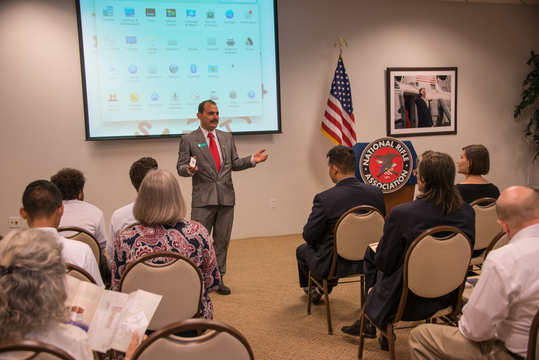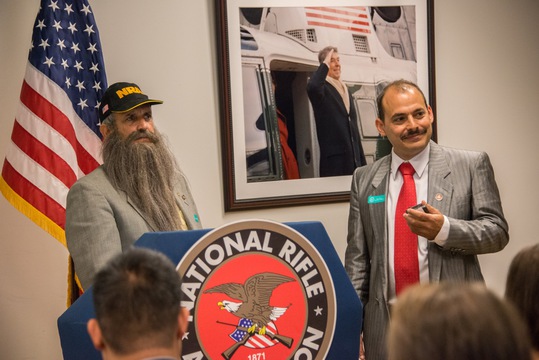Search results for 'control'
Ban Facial Recognition Europe
Text campaign and research Ban Facial Recognition Europe, by Paolo Cirio. 2020
This petition introduces the campaign for the permanent ban of Facial Recognition used for identification and profiling in all of Europe. An initiative by the activist Paolo Cirio and thanks to the research and analysis of European Digital Rights (EDRi).
Stop Streaming and Listen: Fight Post-Governmental-Content-Control Streaming Media breaks UK law - find out why nobody wants to care...
Streaming media deliver video or audio content over the web. But streaming media are very different from the web. In the UK such formats force BT to breach the Broadcasting and Telecommunications Act. To the grass-roots activist web-critics, this might be the right (and most likely only) time to pull the plug and prune the web. Alternatively we could happily stream on and witness how independent media production will be pushed to the periphery of the new order. Here is one of many scenarios...
Frequently Asked Questions: Digital Work
How does digital work differ from its analogue forms?
Although developed for military and corporate purposes, digital technologies also create oportunites for working people. With these amazing tools, we are not only able to invent new aesthetic forms, but also can work in more satisfying ways. Above all, digital technologies can allow us to rediscover the dignity of artisan labour without losing the material benefits delivered by the analogue working methods of Fordism. Over the past two centuries, industrialisation has slowly replaced skilled craft labour with repetitive factory and office work. In the Fordist factory, even the pace of working can be determined by the speed of the assembly lines. For most of this century, people have grudgingly accepted the boring nature of their jobs. In return, they have been given enough wages to buy large amounts of goods and services produced by Fordist industrialisation. However, once their living standards are sufficient, most people also want to enjoy satisfaction in their work. They don't just want money, but also respect.
We are not surprised.
We are not surprised.
We are artists, arts administrators, assistants, curators, directors, editors, educators, gallerists, interns, scholars, students, writers, and more—workers of the art world—and we have been groped, undermined, harassed, infantilized, scorned, threatened, and intimidated by those in positions of power who control access to resources and opportunities. We have held our tongues, threatened by power wielded over us and promises of institutional access and career advancement.
Launch: Open 21 (Im)Mobility - Exploring the Boundaries of Hypermobility
Tuesday evening May 24 the theme issue (Im)Mobility of Open, Journal for Art and the Public Domain was presented at the Stedelijk Museum Bureau Amsterdam, in combination with a screening of The Forgotten Space, a film by Allan Sekula and Noël Burch, and a Q & A with filmmaker Noël Burch.
Dow 'Run for Water' - 'Run for your Life!' protest
April 19, 2010
FOR IMMEDIATE RELEASE
Dow Throws a Dismal Party, Few Attend
Underattended "Run for Water" plagued by death, zombies, and dozens of "Dow spokesmen"; truth seems to run free
To Shoot an Elephant
Synopsis
"...afterwards, of course, there were endless discussions about the
shooting of the elephant. The owner was furious, but he was only an
Indian and could do nothing. Besides, legally I had done the right
thing, for a mad elephant has to be killed, like a mad dog, if it's
owner fails to control it".
INFOBAHN BLUES
Since American Vice-President Al Gore made his famous speech in
California a couple of years ago, it has become impossible to scan any
news medium without finding at least one reference to the "Information
Superhighway". The Information Superhighway metaphor - specially
tailored for Mr. Gore's California audience - is so brilliantly
simplistic it seems to have blown the mind of every media editor in the
Western Hemisphere. With an Information Superhighway you just plug in
your modem and roll your data out onto the ramp and into the dataflow
where it zips along the freeway until it hits the appropriate off-ramp.
Finding data is the same - it's all nice straight data-lanes with on
and off ramps and well-banked curves.
The Network of Waves
Public Agency in Hybrid Space
Lead-essay for the theme issue "Hybrid Space" of OPEN, Journal for Art and the Public Domain, #11, (Amsterdam / Rotterdam, 2006).
Parasitic Media
By Nathan M Martin for The Carbon Defense League, September 2002
A parasite is defined as ?an organism that grows, feeds, and is sheltered on or in a different organism while contributing nothing to the survival of its host.? The tactics of appropriation have been co-opted. Illegal action has become advertisement. Protest has become cliché. Revolt has become passé. These disputes have reached the definition of rhetoric. They are the usual suspects. Having accepted these failures to some degree, we can now attempt to define a parasitic tactical response. We need a practice that allows invisible subversion. We need to feed and grow inside existing communication systems while contributing nothing to their survival; we need to become parasites. We need to create an anthem for the bottom feeders and leeches. We need to echo our voice through all the wires we can tap but cloak our identity in the world of non-evidence, and the hidden.
The 1988 Tompkins Square Police Riot - A Video Point of View
Saturday night on August 6th 1988 was stiflingly hot and humid. My
apartment had no air conditioning and I was dying from the heat.
Fortunately that night I was booked from midnight to 7 a.m. at Broadway
Video at Broadway and 49th street to do special effects and editing on
my video work entitled "Free Society".
The Occupied Times of London Editorial, Issue #23, "Technology", November 2013.
The latest issue of The Occupied Times of London is devoted to the question of technology in contemporary forms of political contestation. The main question thrown up by the editors is to ask: "What is technology for?" (TMF editors)
ReadA call to the Army of Love and to the Army of Software
October 2011.
The fight opposing financial dictatorship is erupting. The so-called 'financial markets' and their cynical services are destroying the very foundations of social civilization.
Post-media Operators
1.
The record industry is in the process of being outflanked by
means of the very processes that it has come to rely upon. Since the
60's its continual efforts to create new needs has meant that it
nurtured an everchanging musical soundscape that is now mutating at
such a pace that it cannot keep track long enough to harness these
musical evolutions in the direction of profit. That fact that it
doesn't achieve this harnessing has the remarkable effect of making the
'new' last longer! A longevity that comes from our always being able to
place ourselves amidst a continual re-definition of these sounds. Even
in terms of format, the profit-orientated shift to a CD market which
may have meant that back-catalogues could be re-sold has also worked to
deliver an on-line tap of musical history at the same time that vinyl
pressing has become cheaper. These and other factors feed into the
accelerating mutation that in turn creates a dissatisfaction with what
the industry can offer.
Information Devolution
As new technologies make it possible to move more information faster than ever before, we are dazzled by the millions of gigabytes that move across the world in nanoseconds. We are infatuated by bandwidth, digital television by gadgets and gizmos. Yet we hardly ask questions about the quality of the information: what is it that we are communicating? Is it relevant? Will it make the world a better place? And does all this information add up to knowledge?
ReadRehearsal of Memory
About his CD-ROM production called ROM
The production of this interactive programme has been commissioned by
Video Postive 1995 and the construction of the artwork is set to take
place during January to April 1995.
TERROR FEEDS: Inside the Fear Machine
Outer Spaces Conference Series 2017
An analysis of ISIS and its media strategy, the meaning of cyber jihad, and why people enrol as foreign fighters.
The 12th conference of the Disruption Network Lab
Directed by Tatiana Bazzichelli. Studio 1, Mariannenplatz 2, 10997 Berlin.


